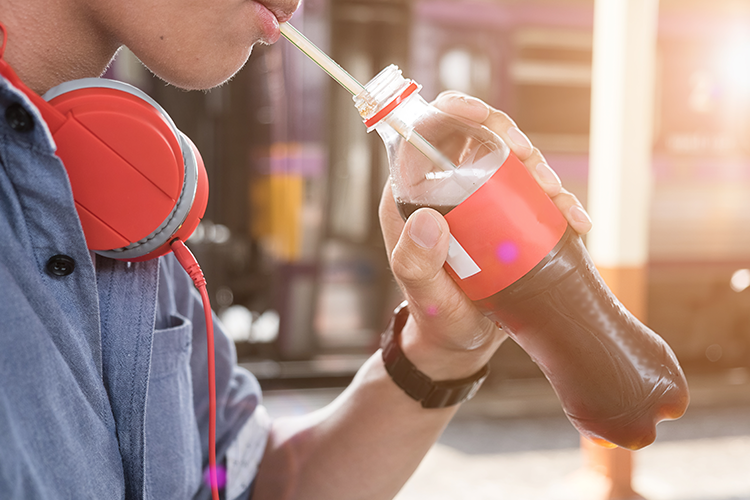Blog
Aussie teens slamming the sweet drinks
 Holy moly. 1 in 6 Aussie teen boys are drinking 52 litres of soft drink every year. That’s a litre a week.1
Holy moly. 1 in 6 Aussie teen boys are drinking 52 litres of soft drink every year. That’s a litre a week.1
For something that is intended to be ‘enjoyed in moderation’ and a discretionary food, this amount of added sugar from soft drink alone is excessive.
“A litre of soft drink a week may not sound like much, but over a year it equates to at least 5.2kg of extra sugar, and this doesn’t even account for other sugar-sweetened beverages such as energy drinks, cordials and fruit flavoured drinks, or the sugar they consume in junk food and snacks,” said Kathy Chapman, Chair of the Nutrition and Physical Activity Committee at Cancer Council Australia.
Researchers from the Cancer Council and Deakin University analysed data from the 2012-13 National Secondary Students’ Diet and Activity (NaSSDA) survey. The findings, published in Public Health Nutrition, reported 14% percent of student participants (n=7,835) drank at least 4 cups (at 250ml each) of soft drink per week.
“Overall, almost 17% of teenage boys consume a litre of sugary soft drink a week, compared to just under 10% of females,” said Chapman. “Sugar-sweetened soft drinks are energy-dense and offer no nutritional value, there is no good reason for teens to be consuming them this often.”
External drivers identified for drinking soft drink were having at least $40 per week spending money, convenience and good value, and availability in the home and canteen or vending machines at school.
But the high consumption was also linked with other unhealthy behaviours.
The cluster effect
High amounts of soft drink drunk were correlated with more junk and snack foods eaten, watching more than 2 hours of TV, and sleeping less than 8 hours per night. A pattern was also seen with low fruit intake, and a having an energy drink every week.
We are learning more about the detrimental effects of excessive added sugar consumption. Heart disease, non-alcoholic fatty liver disease, type 2 diabetes, and excessive weight gain are a few long-term health concerns. And day-to-day there are impacts to mood, focus, and energy.
The teenage years are tough. There are many physiological changes taking place, and teens are increasingly under pressure to perform, exceed and achieve when they are undergoing big social, hormonal and emotional changes.
Poor dietary habits will not be helping them cope. Addressing accessibility, affordability and education around soft drinks, excess sugar, and other lifestyle factors are needed. Pronto.
“Australian males already have poorer health in adulthood – including a shorter life expectancy, higher risk of dying early from chronic diseases, including cancer,” says Chapman. “Without action, our next generation of men will continue to fall behind.”
By Angela Johnson (BHSc Nut. Med.)
References:
- Scully, M., Morley, B Niven, P Crawford, D Pratt, I & Wakefield, M 2017, ‘Factors associated with high consumption of soft drinks among Australian secondary-school students’, Public Health Nutrition, [Epub ahead of print].











